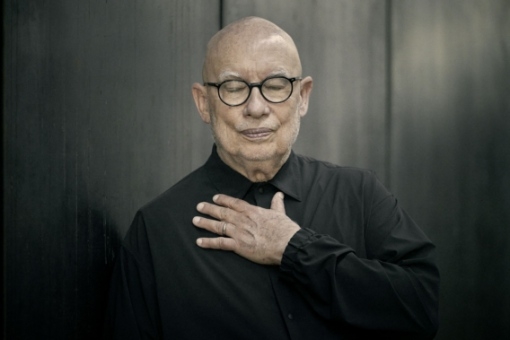Davies- Skrowaczewski - Bruckner. Three musical personalities will meet in the upcoming program of the Brno Philharmonic under the name Bruckneriana. The concerts will take place on Thursday and Friday at the Janáček Theatre.
“The Brno Philharmonic’s chief conductor, Dennis Russell Davies, was the head of the Bruckner Orchestra in Linz for fifteen years before his Brno engagement. Thanks to frequent performances of his works there, he has deeply penetrated not only his music, but also its interpretative particularities and pitfalls. He is one of the most renowned Bruckner conductors and every performance of a Bruckner composition is a powerful experience,” said Vítězslav Mikeš, program director of the Brno Philharmonic. Polish-American conductor and composer Stanisław Skrowaczewski was a similarly acclaimed Bruckner interpreter. In addition to his long-standing friendship with Davies, they also share the fact that they have both conducted and recorded all of Bruckner’s symphonies. “Moreover, the 100th anniversary of the birth of the important Polish composer and conductor was commemorated by the music world on 3 October this year,” Mikeš noted. The concerts will take place on Thursday 23 and Friday 24 November at the Janáček Theatre and will start at 7 pm.
Skrowaczewski’s Passacaglia immaginaria will open the evening. It was written in 1995 and was nominated for the Pulitzer Prize. As its title suggests, it is conceived as a metamorphosis of the traditional Baroque form, reworking the old form with contemporary means. It hypnotically repeats and then alters the bass, over which more and more themes unfold.
The second half of the evening belongs to Anton Bruckner, who is considered one of the greatest symphonists in history. He made no secret of his inspiration by Richard Wagner, whom he admired. “Through his symphonies Bruckner tells stories and dramas, although they are not directly spoken. They reflect the turbulent interior of a man with huge ambitions and a creative ego, who is at the same time crippled by an eternal and strong neurosis and feelings of hurt and a lack of recognition. He feels connected to eternity yet at the same time he cannot distance himself from unfavourable criticism or from the disrespect with which contemporary jokers and caricaturists regale him,” said music publicist Boris Klepal.
Bruckner’s symphonies require a large orchestra, placing high demands on the orchestra’s performance, artistic rendition and the audience’s attention. Symphony No. 6, which the Philharmonic performs, is very demanding in terms of rhythm alone. “In general, Bruckner's music should not be over-examined from the outside and judged on the basis of individual aspects. The best way is to jump into it headfirst, immerse yourself for a long time, become as much a part of it as possible and try to feel and understand it from the inside. Similarly, it is advisable - especially with the Sixth Symphony - to observe the orchestra as a whole rather than in individual instrumental groups. In this very symphony, one could be deprived of the beautiful timbre, perhaps the most beautiful ever created by a composer,” Klepal pointed out.
By linking Skrowaczewski and Bruckner, the concert intersects several lines of musical history from the turn of the Renaissance and Baroque through monumental Neo-Romanticism to the present day.













No comment added yet..